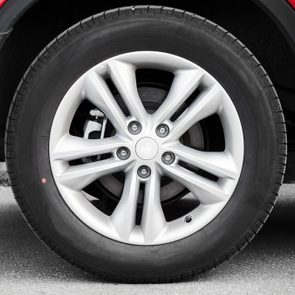Ever since the first hybrid-electric vehicles hit showrooms right around the turn of the millennium, buyers have been wowed by the seemingly incredible fuel economy given by the combination of a gas engine, an electric motor, and a large battery pack. Celebrities, always conscious of their outsized influence, queued to buy and be seen in the Toyota Prius—a compact hybrid sedan with styling that was unmistakable for anything else.
Indeed, hybrids have become an incredibly popular type of motor vehicle. You’d think that using less gasoline would a win for the environment—and you’d be right. But there might be a catch. The big battery that makes a hybrid possible might actually be just as bad as burning too much gasoline.
Hybrid? Electric? EV? Plug-In? What’s the difference?
Let’s line up some definitions here, since we will be primarily dealing with hybrids—but a few other categories of car share some similar components:
- Hybrid: A vehicle that uses both a traditional gasoline engine and an electric motor to drive the vehicle. Sometimes referred to as HEV (Hybrid Electric Vehicle). Examples include the Toyota Prius and Honda Insight, among many others.
- Electric vehicle—often referred to as EV: These vehicles use only electricity to power the vehicle, and thus must be plugged into a charging station or a home wall plug to recharge. A popular example is the entire Tesla lineup.
- Plug-in hybrid: A hybrid vehicle that still has both a gas engine and an electric motor, but also has a charging port to plug into the wall or a charging station. These plug-in hybrids (PHEV for short) have a larger battery than traditional hybrids, and will often allow the vehicle to drive on only electric power for some number of miles before the gas engine automatically kicks in. The Toyota Prius Prime is one example of a PHEV.
What’s in those batteries?
Most modern hybrids and other electrified vehicles use a lithium-ion battery, while older versions used a nickel-metal hydride battery. Both of these battery types use a number of rare-earth metals, which are only mined in certain places on the globe.
Studies have shown that mining for these metals uses a good bit of energy after all, most bulldozers and other mining machines burn diesel fuel—and they require sterile, high-temperature refining processes that use even more energy. It depends on where in the world these batteries are made, but there can be a significant environmental impact in making the battery.
What about refining those rare earth metals?
Many of the materials used in manufacturing lithium-ion batteries tend to be produced in China. An MIT study found that—beyond the impact of the mining process itself—refining these metals tends to use chemicals that will negatively affect the pH of water near the factory. “[S]ome fish can only live in water within a narrow pH range,” the study notes, “and some plants only flower within a certain pH range.”
The study goes on to estimate that Chinese refining techniques produce “1.2 to 1.6 billion cubic metres” of gaseous waste each year. As refining technology and regulation of the industry improve, it is hoped these emissions can be minimized.
So, how does a hybrid or electric vehicle compare to a typical car?
In 2011, the Low Carbon Vehicle Partnership commissioned a report that noted that electric and hybrid cars require more carbon emissions to manufacture. A typical gasoline-powered car produces around 5.6 tons of carbon dioxide during manufacturing, while a comparable electric car produces 8.8 tons of carbon dioxide—all before it turns a wheel. This is a shocking figure, but one that doesn’t tell the entire story.
After all, once that electric or hybrid car gets into a driver’s hands, it will be using less petroleum than the gasoline-powered car. Over a similar lifespan and including the manufacturing, the hybrid or electric car will create 18 tons of CO2, while the gas car creates 24 tons. And if you do end up with a gas-powered car, here are a number of ways to get better gas mileage and pay less at the pumps.
What about electric cars — you have to plug them in, right?
Yes, EVs need to be plugged in—whether an outlet in your garage, or a charging station at the supermarket or other parking lot. The car itself doesn’t create any sort of carbon emissions.
But think about what’s on the other end of that plug. Your electricity could be produced by any number of sources—some of which generate carbon emissions. While wind and solar energy are nearly carbon-free, other sources (including coal and natural gas) of electric power simply move the emissions from your tailpipe downstream to a big power plant.
What does this mean for the future?
Ultimately, the hybrid or electric car you buy today should be better for the environment than the one you could have bought several years ago, and one you buy in a few years should be better than anything you can buy today.
Technology continues to improve—from more efficient manufacturing processes to less extractive mining techniques to changes in the makeup of batteries. Beyond that, industry and government regulations continue to force battery manufacturers to clean up their efforts.
Now that you know the problem with hybrid cars, find out the truth about new car incentives.
What is impostor syndrome?
Have you ever found yourself wondering how you got to your current position in work or how you ended up with such a great family? Have you ever thought that if people knew the “real” you, they wouldn’t like you? Have you ever found yourself worrying about being “found out” even though you’re not being deceitful?
If so, you might have a common mental health issue called impostor syndrome.
Impostor syndrome is when a person doubts their abilities, feels like a fraud, and believes their accomplishments are due to luck rather than their own skill, says Sanam Hafeez, PsyD, a neuropsychologist and faculty member of Columbia University in New York City.
Although it’s not listed in the Diagnostic and Statistical Manual of Mental Disorders (DSM), which is the gold standard for diagnosable psychiatric conditions, experts do recognize it as a deep-seated insecurity that can have a big impact not only on a person’s career but also their personal life and relationships.
They may fear they are unworthy of good things and may worry constantly about being “found out” or unmasked and then losing it all, says A.J. Marsden, PhD, an assistant professor of human services and psychology at Beacon College in Leesburg, Florida.
All of this fear can lead to long-term conditions, like depression and anxiety. (Learn to spot the signs of high-functioning anxiety.)
The anxiety that comes with impostor syndrome can cause a person to overcompensate or develop obsessive-compulsive behaviours.
Chronic anxiety takes a real toll on physical health as well.
There’s a chance you’re thinking, “Hey, that sounds like me.” Impostor syndrome happens to the best of us.
“It is not uncommon to occasionally experience moments of impostor syndrome,” says Marsden. “In fact, about 70 per cent of people experience it at some point in their lives.”
Sometimes these feelings are triggered by an overly critical boss or loved one, but impostor syndrome can also happen on its own in people who are already unsure of themselves.
(Sound familiar? Try these confidence lessons you can learn at any age.)
Your own worst enemy
At its core, impostor syndrome is a form of self-sabotage, says Christine B. L. Adams, MD, psychiatrist and author of Living on Automatic.
It can turn into a self-fulfilling prophecy: believing you don’t deserve what you have can make you worry excessively about losing it, which in turn can make it harder to function and to achieve your goals.
For instance, people with this syndrome may reject a promising job promotion or turn down a date with a potential love because they think they won’t be good enough.
It’s a sneaky syndrome and can start out with subtle self-doubts that then spiral into obsessive thoughts and deeply painful feelings.
It can be hard to spot this condition in yourself, which is why it’s so important to learn about it. That way, you can take steps to check it before you sabotage your own happiness, says Hafeez.
“People need to know about impostor syndrome to be aware of the common signs and be able to develop strategies to manage their feelings and minimize its impact,” she says.
Who is most at risk
Anyone can develop impostor syndrome; however, people with a strong desire to achieve are at the greatest risk, says Hafeez.
Add the pressure of a society that highly values achievements, often equating them with a person’s worth, and you have the perfect recipe for impostor syndrome.
A big factor in whether you are susceptible to this kind of pressure is how you grew up, says Dr. Adams.
“Children who were pushed to accomplish but weren’t praised and were taught that accepting praise was wrong often carry those feelings into adulthood, says Dr. Adams.
People who belong to groups who experience increased societal pressure, workplace microaggressions, or have ingrained self-doubt are also at a higher risk. This may include people in the LGBTQ community, women, and people of colour.
“Factors such as stereotypes, discrimination, and oppression amplify the impostor syndrome phenomenon in these individuals,” says Hafeez.
Anyone going through a big change, like a divorce or career move, is also at risk, as their self-esteem may already feel unstable from those events, Marsden says.

Signs of impostor syndrome
Feeling like a fraud or a phony in your career, relationship, or generally in your life is the primary symptom of this syndrome but you may not realize that this is what you are feeling.
These questions from our experts can help you identify and name what you’re feeling. Ask yourself:
-
Do you believe you don’t deserve success or happiness?
-
Do you have difficulty accepting praise?
-
Does getting an award or public praise ever make you feel terrified or angry?
-
Do you constantly question your own skills and abilities?
-
Do you worry that you only succeeded at something because others felt bad for you?
-
Do you set very high expectations for yourself?
-
Are you very sensitive to criticism?
-
Do you have low self-esteem or self-confidence?
-
Do you often find yourself ruminating on negative thoughts about yourself, your relationships, your job, or your life?
-
Do you worry that if people really knew you they wouldn’t like you?
-
If someone asks you to list five things you are good at, is it hard for you to name your skills?
-
Have you ever lashed out at someone in anger who was trying to compliment you?
-
Do you generally deflect compliments?
-
Do you give others more credit for the success of group endeavours?
It’s normal to feel self-doubt sometimes, but if you answered yes to many of those questions and they are pervasive, not just happening every once in a while, then you may have impostor syndrome, says Hafeez.
Overcoming impostor syndrome
These thought patterns may feel entrenched, but you can short-circuit them, stopping the cycle before it drags you down. Here are some steps for healing:
Talk to a professional
If overcoming impostor syndrome was as simple as just telling yourself to cut out the negative thoughts, then it wouldn’t be a problem. These patterns can run deep, often tracing back to childhood, says Dr. Adams.
Speaking to a psychologist or mental health professional is a great first step to help you identify the source of your thoughts and teach you how to reframe them. (Here are the sure signs you could use the help of a therapist.)
Set realistic goals
Overachievers want to shoot for the moon, but that can end in frustration and hurt their self-confidence. Instead, practice setting realistic goals that build up to your grand plan.
Cut out toxic people
Impostor syndrome may live in your mind, but it can be triggered or worsened by others around you who criticize, belittle, or undermine you.
You won’t be able to heal yourself until you remove yourself from that toxic environment or people, says Hafeez.
Write a list of your accomplishments
Seeing it in black and white can help you recognize how much you’ve really done and help you learn to feel a sense of pride in happiness in your accomplishments.
If you’re having a hard time writing the list, ask a trusted friend or mentor to help you, says Hafeez.
Stop comparing yourself to others
People with this syndrome often fall into the trap of comparing their weaknesses with other people’s strengths, which can make their thoughts about being a fraud even more intense, says Marsden.
“Comparisons are counterproductive,” she says. “Instead of focusing on others, take responsibility for your success and recognize that you didn’t get there by accident.”
Keep a “positivity journal”
Get a lovely compliment from a friend? Win an award at work? Receive an accolade from a colleague? Grab a journal and write down every single positive comment, no matter how small.
“Whenever you start to feel like a fraud, break out the positivity journal and remind yourself of your achievements,” says Marsden. (Check out more proven benefits of journaling.)
Practice accepting praise
If accepting praise or awards makes you feel intensely uncomfortable, embarrassed, or even angry, try role-playing some scenarios with a friend. This allows you to practice graciously saying thank you and avoid self-deprecating or angry responses, says Dr. Adams.
Observe yourself
Pretend that you are an outsider looking at your life. What would you think of yourself in that situation? Or, try imagining a friend accomplishing what you have and then ask what you would say to them. Trying to see yourself and your accomplishments from an outside perspective can help you see things more objectively and kindly, says Dr. Adams.
Get treatment for mental illness
Impostor syndrome can contribute to depression, anxiety, and other mental illnesses. And those illnesses, in turn, can make impostor syndrome feel worse.
Sometimes it takes professional help, like therapy and/or medication, to break the cycle. Treating these underlying conditions first can be an essential first step, says Dr. Adams.
Next, find out how to spot the signs of high functioning depression.


 Car Dealer Tricks to Watch Out For" width="295" height="295" />
Car Dealer Tricks to Watch Out For" width="295" height="295" /> How to Get the Most Out of Therapy" width="295" height="295" />
How to Get the Most Out of Therapy" width="295" height="295" />
